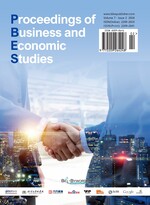Abstract
The lodging and restaurant services sector in the city of Pereira presents complex situations generated by the turbulence of the new business game. Companies that survive the new challenges and those recently established require strategies that allow them to extend their life expectancy. Therefore, the study aims to identify how to apply resilience and management disciplines in a tool that allows companies in the sector under study to sufficiently face situations of high complexity. Achieving this objective requires knowing the causes of the short life span of many companies, identifying how surviving companies articulate management disciplines with their strategic objectives, and analyzing the possibility of formulating an organizational model based on resilience as a value. The methodology applied was mixed. The sample was simply random; 23 companies were analyzed through structured interviews and participant observation. As the most significant results: the deficient application of management disciplines was identified as an important cause of company closures; the level of acceptance to implement the practice of resilience and management disciplines in companies; and the way to apply resilience and management disciplines in an instrument that builds value. It was concluded that an organizational model should be formulated where resilience and management disciplines are applied to face times of crisis.
References
Dominguez Rivera J, 2017, En Colombia, La Vida Promedio de una Empresa es de 5 Años [In Colombia, the Average Life of a Company is 5 years]. El País, Madrid.
Baron A, 2017, Periodico Nova et Vetera [New and Old Newspaper], viewed August 15, 2022, https://www.urosario.edu.co/Periodico-Nova-Et-Vetera/Empresa/Las-cuatro-razones-del-fracaso-en-los-negocios/
COMFECAMARAS, 2018, Nuevos Hallazgos de la Supervivencia y Crecimiento de las Empresas
en Colombia [New Findings on the Survival and Growth of Companies in Colombia]. COMFECAMARAS, Bogotá.
COMFECAMARAS, 2017, Determinantes de la Supervivencia Empresarial en Colombia [Determinants of Business Survival in Colombia]. COMFECAMARAS, Bogotá.
Uriarte Arciniega JD, 2005, La Resiliencia. Una Nueva Perspectiva en Psicopatología del Desarrollo [Resilience. A New Perspective in Developmental Psychopathology]. Revista de Psicodidáctica, 10(2): 61–79.
Norris FH, 2008, Community Resilience as a Metaphor, Theory, Set of Capacities, and Strategy for Disaster Readiness. American Journal of Community, 41(1–2): 127–150. https://doi.org/10.1007/s10464-007-9156-6
Sheffi Y, 2016, El Poder de la Resiliencia [The Power of Resilience]. Temas Grupo Editorial, Buenos Aires.
Córdoba Padilla M, 2012, Gestión Financiera [Financial Management]. ECOE Ediciones, Bogotá.
ISOTools, 2021, La Norma ISO 31000. El Valor de la Gestión de Riesgos en las Organizaciones [ISO 31000 Standard. The Value of Risk Management in Organizations], viewed May 2, 2023, https://www.isotools.us/2021/08/13/tipos-de-riesgo-segun-lanorma-iso-31000-2018/
Bravo Mendoza O, Sánchez Celis M, 2005, Gestión Integral de Riesgos [Integral Risk Management]. Bravo & Sánchez, Bogotá.
Bravo Perdomo LC, 2020, Gestión Financiera Durante una Crisis [Financial Management During a Crisis], in Dirección Empresarial: ¿Cómo Navegar en Tiempos de Crisis? Universidad La Sabana, Bogotá. https://doi.org/10.529/978-958-12-0559-2.2020.14
ISOTools, 2017, Resiliencia Organizacional con el Nuevo Estándar ISO 22316 [Organizational Resilience with the New ISO 22316 Standard], viewed May 2, 2023, https://www.isotools.us/2017/06/06/resiliencia-organizacional-iso-22316/
Vasquez-Rizo FE, 2021, Gestión de la Información. Medición de la Capacidad de Investigación en Instituciones y sus Grupos [Information Management. Measurement of Research Capacity in Institutions and Their Groups]. Universidad Autónoma de Occidente, Cali.
Nonaka I, Takeuchi H, 1995, The Knowledge-Creating Company. Oxford University Press, Oxford.
Jimenez M, 2014, La Gestión Informática de la Empresa. Nuevos Modelos de Negocios [Business Informatics Management. New Business Models]. RA-MA Editorial, Madrid.
Harman C, Brelade S, 2000, Knowledge Management and the Role of HR. Financial Times/Prentice Hall, Edinburgh.
Drucker PF, 1999, Los Desafíos de la Gerencia para el Siglo XXI [The Challenges of Management for the 21st Century]. Norma, Bogotá.
Hernandez Sampieri R, 2014, Metodología de la Investigación [Research Methodology]. McGraw-Hill / Interamericana Editores, México.
Ortiz Ocaña A, 2015, Enfoques y Métodos de Investigación en las Ciencias Sociales y Humanas [Approaches and Research Methods in Social and Human Sciences]. Ediciones de la U, Bogotá.
DANE, n.d., EMA Bulletin, viewed April 10, 2022, https://www.dane.gov.co/files/investigaciones/boletines/ema/boletin-EMA-diciembre-2020.pdf
DANE, n.d., December 2020 Bulletin, viewed April 10, 2022, https://www.dane.gov.co/files/investigaciones/boletines/ems/bol_ems_diciembre_20.pdf
Veliz Montero F, 2014, Resiliencia Organizacional [Organizational Resilience]. Gedisa Editorial, Barcelona.
Blasquez A, 2013, La Información y Comunicación, Claves para la Gestión del Conocimiento Empresarial [Information and Communication, Keys to Business Knowledge Management]. Revista Dimensión Empresarial, 11(1): 23–32. https://doi.org/10.15665/rde.v11i1.158
Blanchard KH, O’Connor M, 1997, Administración por Valores [Management by Values]. Norma, Bogotá.
Molina JL, Marsal Serra M, 2001, La Gestión del Conocimiento en las Organizaciones [Knowledge Management in Organizations]. LibrosEnRed, Buenos Aires.
Santillán de la Peña M, 2010, Gestión del Conocimiento. El Modelo de Gestin de Empresas del Siglo XXI [Knowledge Management. The Business Management Model of the 21st Century]. Netbiblo, Spain.
